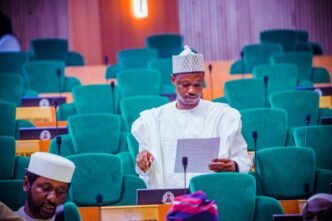A significant piece of legislation, known as the “Bill for an Act to Provide Legal Framework for the Enhancement and Growth of Digital Economy and Digital Governance in Nigeria” (HB. 1599), is currently making its way through the House of Representatives. Sponsored by Hon. Adedeji Stanley Olajide, the bill seeks to establish a comprehensive legal and regulatory environment for Nigeria’s rapidly expanding digital sector. Bill progress: Committee stage.
This Bill is also referred to as the National Digital Economy and E-Governance Bill, 2024, HB. 1599 outlines several critical objectives:
- Promote Economic Growth: The bill aims to leverage digital technology to boost Nigeria’s economy, foster innovation, and create a conducive environment for fair competition. A major emphasis is placed on building export-oriented capacities to improve the country’s balance of trade.
- Enhance Public Service Delivery: The proposed legislation seeks to mandate the digitalization of government services and processes, thereby improving efficiency, transparency, and accountability in public service delivery.
- Legal Validity for Digital Activities: A crucial provision in the bill is the legal recognition of electronic transactions, records, and signatures, granting them the same legal status as traditional paper-based documents. This step is intended to build trust and confidence in digital commerce and communication.
- Support Digital Trade and Investment: The bill aims to provide a robust legal framework to facilitate international digital trade and attract investment into Nigeria’s digital landscape.
- Consumer Protection: It includes provisions to protect consumers engaged in digital transactions, such as data protection regulations and guidelines for online dispute resolution.
As a strong advocate for this initiative and Chairman of the House Committee on ICT, Hon. Adedeji Stanley Olajide has underscored the need for a comprehensive legal framework to guide Nigeria’s digital economy.
The bill’s successful passage and potential enactment are crucial for several reasons:
- Filling Legislative Gaps: Nigeria’s digital economy has been expanding within a fragmented legal framework. This legislation aims to establish a cohesive law governing digital activities.
- Providing Legal Certainty: By clarifying rules for electronic transactions and signatures, the bill would reduce ambiguities, offering legal certainty for both businesses and individuals.
- Boosting Investor Confidence: A solid legal framework is essential for attracting both foreign and local investment in the tech sector, signaling a stable and predictable operating environment.
In crafting this bill, extensive nationwide consultations have taken place, engaging stakeholders from the public sector, private sector, and civil society. These consultations, supported by initiatives such as the World Bank’s Identification for Development (ID4D), aim to ensure that the final legislation reflects the needs and aspirations of all Nigerians while being grounded in the country’s realities.
As the legislative process continues, the passage of HB. 1599 presents a vital opportunity to advance Nigeria’s digital economy and governance framework, positioning the country for future growth and innovation in the digital age.










